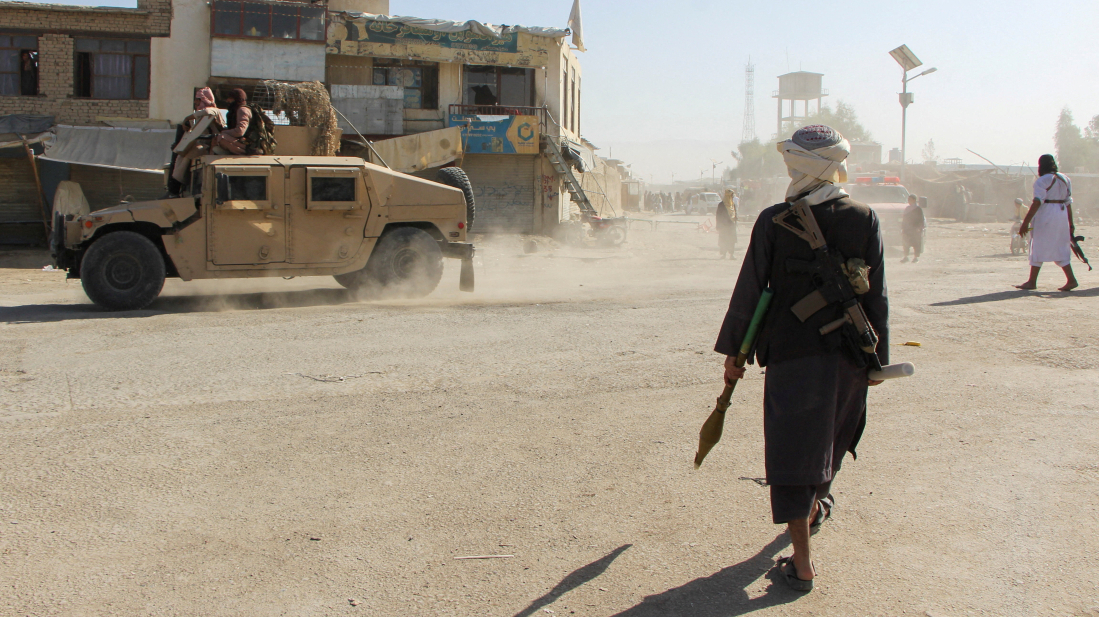Pentagon: Iran has launched more than 2,000 drones in Middle East so far
The U.S. military's Central Command said on Tuesday that Iran has launched over 500 ballistic missiles and ...

Pakistan and Afghanistan have agreed to extend their 48-hour ceasefire until the conclusion of peace talks expected to begin on Saturday in Doha, Qatar, following days of border clashes.
The truce was first declared on 15 October after mediation by Qatar and Saudi Arabia helped both sides pause hostilities. According to Pakistani media citing a senior diplomatic source, the extension was made at Afghanistan’s request. However, Afghan broadcaster Tolo News, quoting unnamed sources in Qatar, reported that it was Pakistan that sought the continuation of the ceasefire. Neither government has issued an official confirmation, and the length of the Doha talks remains unclear.
The latest escalation began on 9 October, when Pakistan launched air operations near Kabul, which officials said targeted members of Tehrik-e-Taliban Pakistan (TTP). Islamabad accuses the group of using Afghan territory to coordinate attacks in Pakistan’s Khyber Pakhtunkhwa and Balochistan provinces.
Afghan forces reportedly responded with cross-border fire on 11 October, leading to several days of fierce fighting along the frontier, especially in the Spin Boldak–Chaman corridor. Islamabad maintains that its actions were defensive and aimed at neutralising militants staging attacks from across the border.
Pakistan continues to press the Taliban-led administration to take concrete and verifiable action against TTP fighters operating from Afghan soil. The group, designated as a terrorist organisation by Islamabad, is blamed for hundreds of deadly attacks inside Pakistan. Officials say their operations are meant to prevent further infiltration and protect border communities.
Islamabad also stresses that it has exercised restraint and remains committed to dialogue, arguing that long-term stability in Afghanistan directly supports Pakistan’s own security and regional trade goals.
Kabul, however, denies providing safe haven to the TTP or any other militant group, saying it is taking steps to maintain calm along the border. Still, the TTP continues to exploit the porous Pashtun tribal belt straddling the Durand Line — the colonial-era boundary between the two countries — using the mountainous terrain to evade detection.
Analysts view the extended ceasefire as a fragile but significant opportunity for both governments to rebuild trust and pursue lasting security arrangements through the upcoming Doha talks.
The Kremlin is utilising the recent United States and Israeli military strikes on Iran to validate its ongoing war in Ukraine. Russian officials are pointing to the escalation in the Middle East as evidence that Western nations do not adhere to international rules.
Saudi Arabia’s state oil giant Saudi Aramco closed its Ras Tanura refinery on Monday following an Iranian drone strike, an industry source told Reuters as Tehran retaliated across the Gulf after a U.S.-Israeli attack on Iranian targets over the weekend.
U.S. President Donald Trump said the U.S. military has enough stockpiled weapons to fight wars "forever"; in a social media post late on Monday. The remarks came hours before conflict in Iran and the Middle East entered its fourth day.
Türkiye raised its security level for Turkish-flagged vessels in the Strait of Hormuz to Level 3 on Sunday (2 March). The development follows Iranian restrictions on shipping after U.S. and Israeli strikes and confirmation of Supreme Leader Ali Khamenei’s death.
China’s Foreign Minister Wang Yi has held talks with his Russian counterpart Sergei Lavrov following recent military strikes carried out by the United States and Israel on targets in Iran, as tensions in the Middle East continue to rise.
Strikes across the Middle East are intensifying, fuelling travel disruption, driving up global energy prices and forcing diplomatic missions to shut their doors.
U.S. President Donald Trump has said the United States has a “virtually unlimited supply” of munitions and is capable of sustaining military action indefinitely, as the conflict with Iran entered its fourth day.
The United Nations has called for an investigation into a deadly attack on a girls’ primary school in Iran, which Iranian officials say has killed more than 100 children. The U.S. has said its forces “would not” deliberately target a school.
U.S. first lady, Melania Trump chaired a UN Security Council meeting on children and education in conflict on Monday (2 March), a move criticised by Iran as hypocritical following U.S. and Israeli strikes that triggered a UN warning about risks to children.
Start your day informed with AnewZ Morning Brief. Here are the top news stories for the 3rd of February, covering the latest developments you need to know.
You can download the AnewZ application from Play Store and the App Store.

What is your opinion on this topic?
Leave the first comment